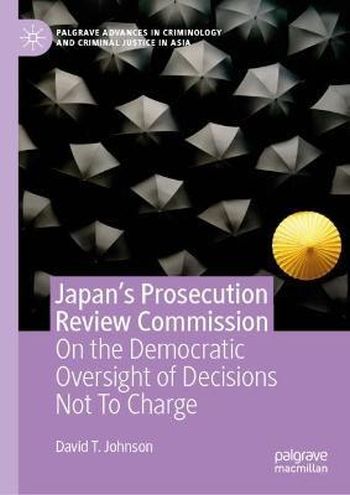
This book explains Japan's unique Prosecution Review Commission (PRC) which is composed of eleven lay people selected randomly from voter registration lists. Each of the country's 165 PRCs reviews non-charge decisions made by professional prosecutors and determines which cases should be reinvestigated or charged. PRCs also provide prosecutors with general proposals and recommendations for improving their policies and practices. The book analyzes the history and operations of the PRC and uses statistics and case studies to examine its various impacts, from legitimation and shadow effects to kickbacks and mandatory prosecution.
More broadly, this book explores a problem that is common in many criminal justice systems: how to hold prosecutors accountable for their non-charge decisions. It discusses the potential these panels have for improving the quality of criminal justice in Japan and other countries, and it will appeal to scholars and students studying prosecution and democracy, criminal justice, criminology, lay participation, justice reform, and Japanese studies.